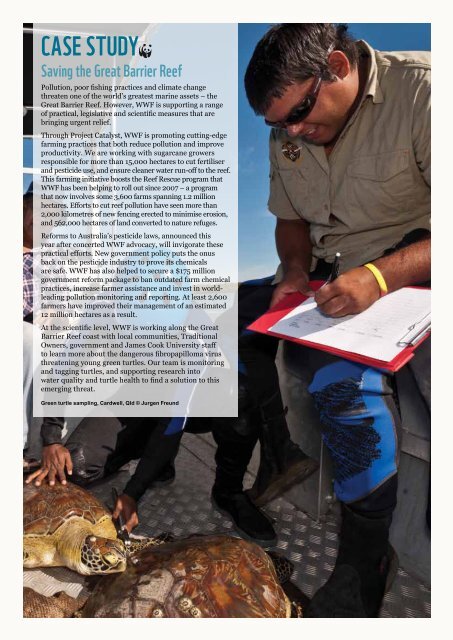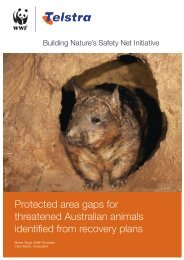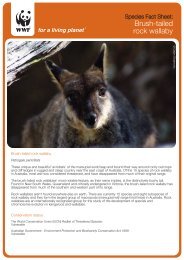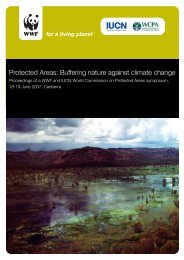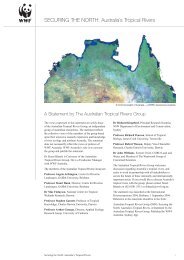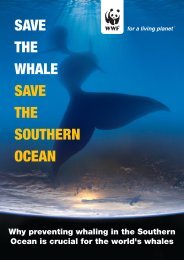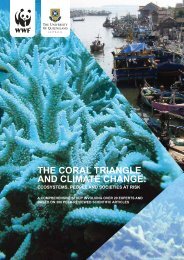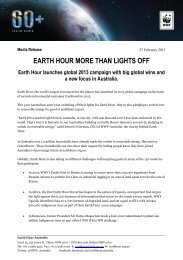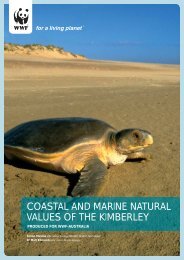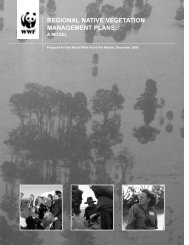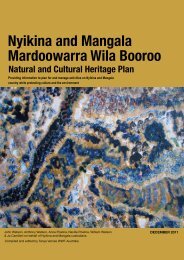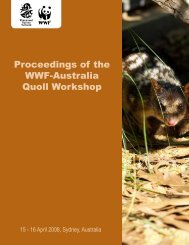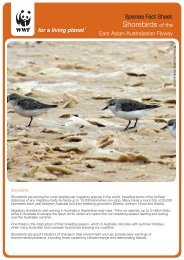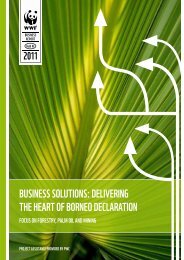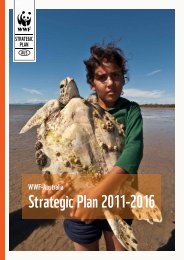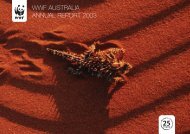WWF-Australia Annual Report 2011
WWF-Australia Annual Report 2011
WWF-Australia Annual Report 2011
You also want an ePaper? Increase the reach of your titles
YUMPU automatically turns print PDFs into web optimized ePapers that Google loves.
CASE StuDY<br />
Saving the Great Barrier Reef<br />
Pollution, poor fishing practices and climate change<br />
threaten one of the world’s greatest marine assets – the<br />
Great Barrier Reef. However, <strong>WWF</strong> is supporting a range<br />
of practical, legislative and scientific measures that are<br />
bringing urgent relief.<br />
Through Project Catalyst, <strong>WWF</strong> is promoting cutting-edge<br />
farming practices that both reduce pollution and improve<br />
productivity. We are working with sugarcane growers<br />
responsible for more than 15,000 hectares to cut fertiliser<br />
and pesticide use, and ensure cleaner water run-off to the reef.<br />
This farming initiative boosts the Reef Rescue program that<br />
<strong>WWF</strong> has been helping to roll out since 2007 – a program<br />
that now involves some 3,600 farms spanning 1.2 million<br />
hectares. Efforts to cut reef pollution have seen more than<br />
2,000 kilometres of new fencing erected to minimise erosion,<br />
and 562,000 hectares of land converted to nature refuges.<br />
Reforms to <strong>Australia</strong>’s pesticide laws, announced this<br />
year after concerted <strong>WWF</strong> advocacy, will invigorate these<br />
practical efforts. New government policy puts the onus<br />
back on the pesticide industry to prove its chemicals<br />
are safe. <strong>WWF</strong> has also helped to secure a $175 million<br />
government reform package to ban outdated farm chemical<br />
practices, increase farmer assistance and invest in worldleading<br />
pollution monitoring and reporting. At least 2,600<br />
farmers have improved their management of an estimated<br />
12 million hectares as a result.<br />
At the scientific level, <strong>WWF</strong> is working along the Great<br />
Barrier Reef coast with local communities, Traditional<br />
Owners, government and James Cook University staff<br />
to learn more about the dangerous fibropapilloma virus<br />
threatening young green turtles. Our team is monitoring<br />
and tagging turtles, and supporting research into<br />
water quality and turtle health to find a solution to this<br />
emerging threat.<br />
Green turtle sampling, Cardwell, Qld © Jurgen Freund


